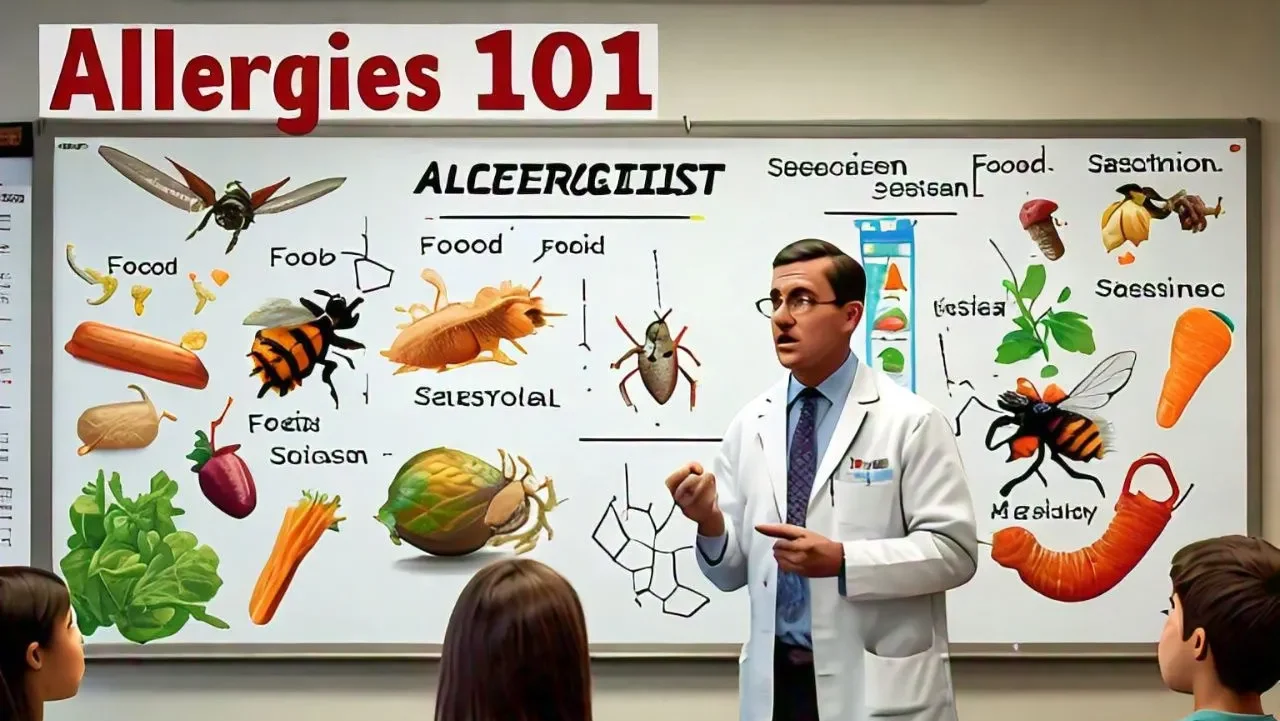Discover the most common allergens and learn symptoms and effective strategies for managing allergies.

Understanding Allergies:
Allergies occur when the immune system reacts to a typically harmless substance as if it were a threat. These substances, known as allergens, can trigger a range of symptoms, from mild discomfort to severe reactions.
Common Allergens:
Q: What are some common allergens that trigger allergic reactions?
A: Common allergens include pollen, dust mites, pet dander, mold, certain foods (such as peanuts, shellfish, and dairy), insect stings, and medications like penicillin. Environmental factors like air pollution and cigarette smoke can also exacerbate allergy symptoms.
Symptoms of Allergies:
Q: What are the typical symptoms of an allergic reaction?
A: Allergy symptoms vary depending on the allergen and can include sneezing, runny or stuffy nose, itchy eyes, hives, swelling, and in severe cases, anaphylaxis—a life-threatening reaction that requires immediate medical attention.
Allergy Management:
Q: How can allergies be managed effectively?
A: Allergy management involves avoiding known allergens, using medications, and sometimes undergoing immunotherapy. Decongestants, Over-the-counter antihistamines, and nasal corticosteroids can help relieve symptoms. For those with severe allergies, carrying an epinephrine auto-injector is crucial. Immunotherapy, such as allergy shots, may be recommended for long-term relief from specific allergens.
FAQ
1. Can allergies develop later in life?
– Yes, it’s possible to develop allergies at any age, even if you’ve never had them before.
2. Is there a cure for allergies?
– There is no cure for allergies, but symptoms can be effectively managed with medications and lifestyle changes. Immunotherapy may offer long-term relief for some people.
3. Can allergies be inherited?
– Yes, allergies can be hereditary, meaning they tend to run in families. If one or both parents have allergies, their children are more likely to develop them.
4. Are food allergies different from food intolerances?
– Yes, food allergies involve an immune system reaction, which can be severe, while food intolerances are usually less serious and involve digestive problems.
Conclusion:
Allergies can significantly impact daily life, but with the right management strategies, symptoms can be controlled effectively. Understanding common allergens and how to avoid them is key to reducing allergic reactions. Working closely with a healthcare provider ensures that your allergy management plan is tailored to your specific needs, helping you live more comfortably.
© 2024 All Rights Reserved by homeremedy4u

